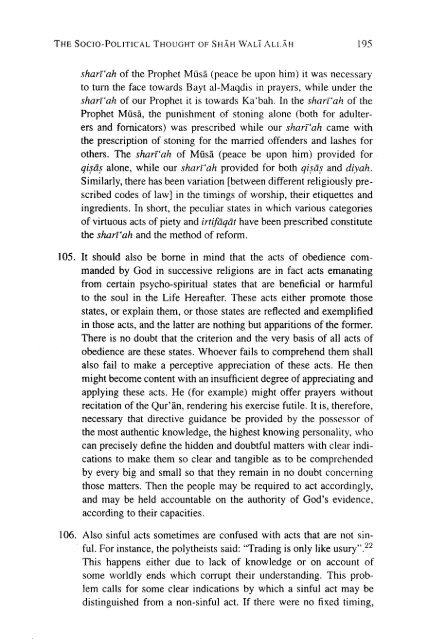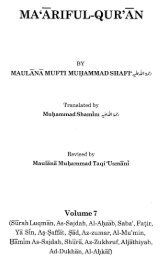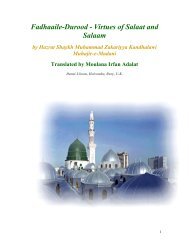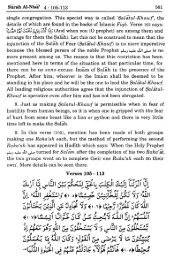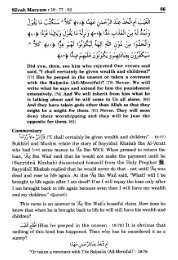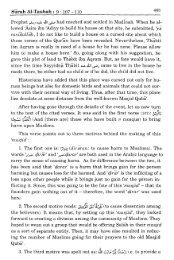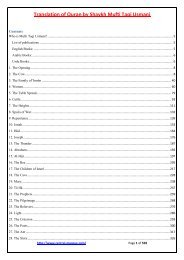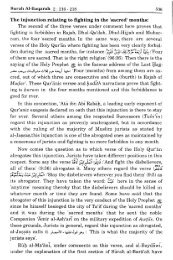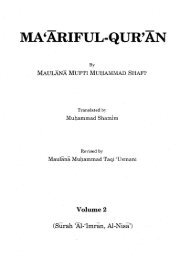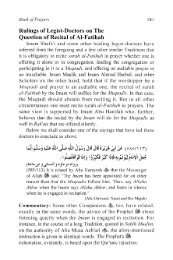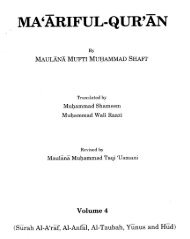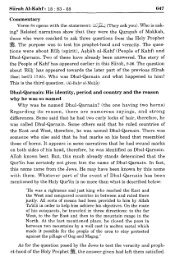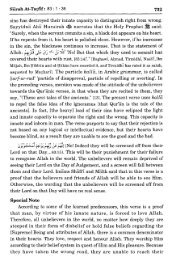Socio Political Thought Of Shah WaliAllah Rahmatullahi Alaihi
Socio Political Thought Of Shah WaliAllah Rahmatullahi Alaihi
Socio Political Thought Of Shah WaliAllah Rahmatullahi Alaihi
You also want an ePaper? Increase the reach of your titles
YUMPU automatically turns print PDFs into web optimized ePapers that Google loves.
shari'ah of the Prophet Muss (peace be upon him) it was necessary<br />
to turn the face towards Bayt al-Maqdis in prayers, while under the<br />
shari'ah of our Prophet it is towards Ka'bah. In the shari'ah of the<br />
Prophet Miis$, the punishment of stoning alone (both for adulterers<br />
and fornicators) was prescribed while our shari'ah came with<br />
the prescription of stoning for the married offenders and lashes for<br />
others. The shari'ah of MI%% (peace be upon him) provided for<br />
qi@ alone, while our shari'ah provided for both qisd~ and diyah.<br />
Similarly, there has been variation [between different religiously prescribed<br />
codes of law] in the timings of worship, their etiquettes and<br />
ingredients. In short, the peculiar states in which various categories<br />
of virtuous acts of piety and irtijEqdt have been prescribed constitute<br />
the shari'ah and the method of reform.<br />
105. It should also be borne in mind that the acts of obedience commanded<br />
by God in successive religions are in fact acts emanating<br />
from certain psycho-spiritual states that are beneficial or harmful<br />
to the soul in the Life Hereafter. These acts either promote those<br />
states, or explain them, or those states are reflected and exemplified<br />
in those acts, and the latter are nothing but apparitions of the former.<br />
There is no doubt that the criterion and the very basis of all acts of<br />
obedience are these states. Whoever fails to comprehend them shall<br />
also fail to make a perceptive appreciation of these acts. He then<br />
might become content with an insufficient degree of appreciating and<br />
applying these acts. He (for example) might offer prayers without<br />
recitation of the Qur'Bn, rendering his exercise futile. It is, therefore,<br />
necessary that directive guidance be provided by the possessor of<br />
the most authentic knowledge, the highest knowing personality, who<br />
can precisely define the hidden and doubtful matters with clear indications<br />
to make them so clear and tangible as to be comprehended<br />
by every big and small so that they remain in no doubt concerning<br />
those matters. Then the people may be required to act accordingly,<br />
and may be held accountable on the authority of God's evidence,<br />
according to their capacities.<br />
106. Also sinful acts sometimes are confused with acts that are not sinful.<br />
For instance, the polytheists said: "Trading is only like usury".22<br />
This happens either due to lack of knowledge or on account of<br />
some worldly ends which corrupt their understanding. This problem<br />
calls for some clear indications by which a sinful act may be<br />
distinguished from a non-sinful act. If there were no fixed timing,


